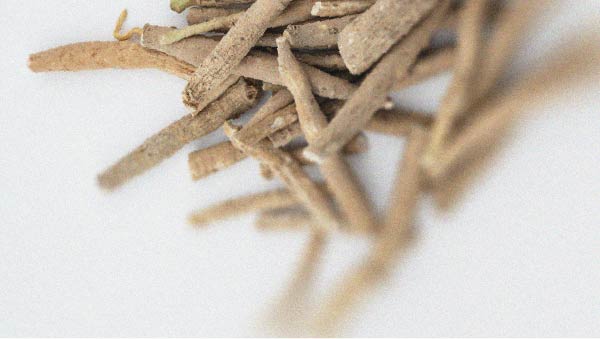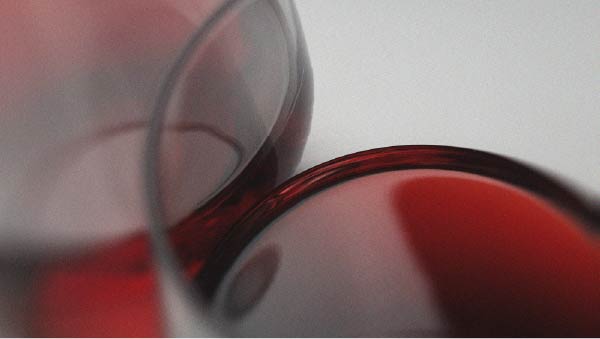8 tips for reducing your blood pressure naturally
Discover some simple measures for reducing your blood pressure (and therefore your risk of developing cardiovascular problems).

Quick reminder: what exactly is blood pressure?
The human heart acts as a pump, distributing blood to organs around the body. For this to function correctly, the blood pumping through arteries needs to be maintained at a certain force. This is referred to as ‘blood pressure’.
As a result of various factors (age, excess weight, smoking ...), too much pressure can sometimes be exerted on artery walls. Elevated blood pressure can cause weakening of the blood vessels, increased heart fatigue and the onset of various cardiovascular problems.
As a general guide, a normal blood pressure reading is considered to be 120/80 mm of mercury (mmHg): 120 is the systolic pressure (the pressure when your heart pushes blood out) and 80 is the diastolic pressure (the pressure when your heart rests between beats. Elevated blood pressure is considered to be 140/90mmHg or higher if taken at the doctor’s surgery, or 135/85mmHg if taken at home.
Discover now our 8 tips to help lower your blood pressure.
1) Some foods to avoid
Start by taking a look at your diet. Avoid salt where possible, as consuming too much can cause the body to retain water, leading to an increase in blood volume and a consequent rise in blood pressure. Salt can be replaced in cooking by herbs and spices. Watch out too for ‘hidden’ salt which is used abundantly in processed foods...
Avoid liquorice. It’s high in glycyrrhizin, a substance which increases sodium and water retention and thus causes a rise in blood pressure.
Eat less food high in unhealthy fats, such as sausages, ham, pâté … and cut down on alcohol . Finally, reduce your consumption of stimulants (tea, coffee ...), which increase the heart rate and elevate blood pressure (1).
2) Take exercise to lower your blood pressure
Physical activity helps to control blood pressure by aiding weight loss, relieving stress and making the arteries more flexible (2).
So put on your trainers and head off for a daily 30-minute walk, go jogging, do some gardening, use your bike to pick up your groceries from the local shops ...
3) The benefits of potassium on blood pressure
While our diets tend to be too high in salt and sodium, they’re often too low in potassium. Yet this excellent mineral is known to help maintain normal blood pressure(3).
You’ll find potassium in foods such as cumin seeds, tomato puree, ground ginger, and at higher concentrations, in potassium supplements (such as Potassium bicarbonate).
4) Keep stress at bay and improve your sleep
Stress, anxiety and sleep problems are also major factors in increasing blood pressure (4).
So it’s a good idea to try yoga or meditation, and allow yourself to benefit from longer, more restorative, sleep. Your arteries and cardiovascular system in general will thank you for it.
5) Consume omega-3s
The omega-3 fatty acids EPA and DHAnormal blood pressure (5). But remember that the body is unable to produce them itself so you have to get them from your diet.
Omega-3s are found in mackerel, sardines, kippers, chia seeds ... For an effective boost to your omega-3 intake, you could also opt for a high-quality fish oil supplement (such as Arctic Plankton Oil).
6) The virtues of astragalus for blood pressure
Astragalus (Astragalus membranaceus) is a plant from the Fabaceae family, which is very popular in traditional Chinese medicine. As well as being good for the body’s natural defenses, it plays a particular role in maintaining normal blood pressure (6).
To benefit from astragalus’ properties, either make a herbal tea from it, or even better, take an astragalus supplement with a high polysaccharide content (such as Astragalus Extract, in liquid form that you take in drops).
Another useful plant in this respect is garlic, which supports healthy veins and blood vessels (7). Benefit, for example, from black garlic (with the supplement ABG10+®).
7) Do you smoke?
As you’ll already be aware, cigarettes are bad for the cardiovascular system. When you smoke, carbon monoxide enters your bloodstream. It then binds with red blood cells in the place of oxygen, potentially resulting in a lack of oxygen in the blood for which the body compensates … by increasing blood pressure (8).
What’s more, smoking exacerbates atheromatous plaque deposits in the arteries (these are essentially an accumulation of blood cells and bad cholesterol) and encourages the development of clots. Patches, apps or even hypnosis can help if you decide to give up smoking,.
8) Hawthorn and cardiovascular health
Hawthorn (Crataegus pinnatifida) is a small, thorny shrub, long-feted for its medicinal properties. Its flavonoid-rich leaves help, in particular, to maintain a healthy heart and cardiovascular system (9).
To benefit from a good intake of hawthorn, take an extract of hawthorn leaf such as that contained in the supplement Tensix. This synergistic formulation contains many other beneficial compounds too, including potassium, arginine, extract of celery seeds, etc.
References
- Bazzano LA, Green T, Harrison TN, Reynolds K. Dietary approaches to prevent hypertension. Curr Hypertens Rep. 2013;15(6):694-702. doi:10.1007/s11906-013-0390-z
- Haute Autorité de santé. Prescription d’activité physique et sportive Hypertension artérielle. Septembre 2018
- Poorolajal J, Zeraati F, Soltanian AR, Sheikh V, Hooshmand E, Maleki A. Oral potassium supplementation for management of essential hypertension: A meta-analysis of randomized controlled trials. PLoS One. 2017;12(4):e0174967. Published 2017 Apr 18. doi:10.1371/journal.pone.0174967
- Spruill TM. Chronic psychosocial stress and hypertension. Curr Hypertens Rep. 2010;12(1):10-16. doi:10.1007/s11906-009-0084-8
- Filipovic MG, Aeschbacher S, Reiner MF, et al. Whole blood omega-3 fatty acid concentrations are inversely associated with blood pressure in young, healthy adults. J Hypertens. 2018;36(7):1548-1554. doi:10.1097/HJH.0000000000001728
- Denzler K, Moore J, Harrington H, et al. Characterization of the Physiological Response following In Vivo Administration of Astragalus membranaceus. Evid Based Complement Alternat Med. 2016;2016:6861078. doi:10.1155/2016/6861078
- Ried K, Frank OR, Stocks NP, Fakler P, Sullivan T. Effect of garlic on blood pressure: a systematic review and meta-analysis. BMC Cardiovasc Disord. 2008;8:13. Published 2008 Jun 16. doi:10.1186/1471-2261-8-13
- Ragueneau I, Michaud P, Démolis JL, Moryusef A, Jaillon P, Funck-Brentano C. Effects of cigarette smoking on short-term variability of blood pressure in smoking and non smoking healthy volunteers. Fundam Clin Pharmacol. 1999;13(4):501-7. doi: 10.1111/j.1472-8206.1999.tb00010.x. PMID: 10456293.
- Wang J, Xiong X, Feng B. Effect of crataegus usage in cardiovascular disease prevention: an evidence-based approach. Evid Based Complement Alternat Med. 2013;2013:149363. doi:10.1155/2013/149363
Keywords
1 Days
First bottle has been finished
First bottle has been finished. 2 bottles remaining for 3 month time frame trial as recommended
CORCORAN Pamela
6 Days
repeat customer
recommended by my doctor. easy to create an account. Discounts and specials are appreciated. packaging and delivery is dependable. Capsules easy to digest. I've had some some capsules and tablets that are broken inside their bottles.
Kokee
11 Days
Order was shipped on time and packaged…Wonderful Jobs!
Order was shipped on time and packaged excellently.
DMHoge
17 Days
great products and prices
great products and prices
Marie
23 Days
Easy to navigate site
Easy to navigate site, had what I was searching for, good price. easy order-check out
James Tucker
29 Days
My skin is clearing up nicely!
Pretty good for my skin so far.
Christian
31 Days
The new packaging is excellent
The new packaging is excellent - finally! No more squashed boxes and torn envelopes.
GORAN
32 Days
Great Product
Great Product
Larry Garrett
37 Days
Quick shipping
Quick shipping; good price. No issues!
Mary McCarty
38 Days
Thr product is very good and is helping…
Thr product is very good and is helping me on my health. Then is always on time
LUGO Luz
41 Days
Buying was fine
Buying was fine. I had problems with the website not recognizing my login info, and had to call to get it fixed. Other than that, everything was good.
David S. Clark
41 Days
Your super maca and super ginseng are…phenomenal
Your super maca and super ginseng are phenomenal supplements that compliment each other when taking them together. Fantastic feeling of well-being and lots of mid day energy without the crash.
Keith Mason
44 Days
I have had amazing results with every…
I have had amazing results with every supplement I've purchased. I am extremely satisfied with this company
kirstin Torres
44 Days
Fine products
Fine products . They are on the leading edge of online supplements. The only issue -so far-is they sometime run out of subscription items.
Jason Argos
46 Days
The ordering process is very user…
The ordering process is very user friendly and the products always come in a timely manner.
CARTER Rhonda




